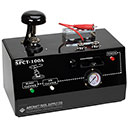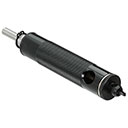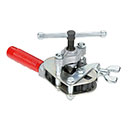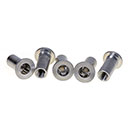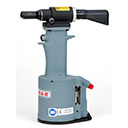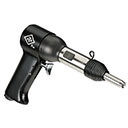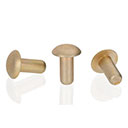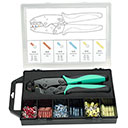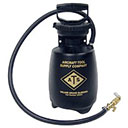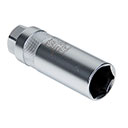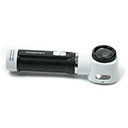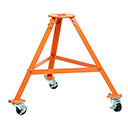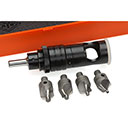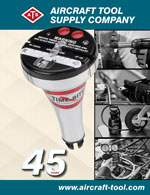SPECIAL ANNOUNCEMENT: We are happy to announce that Aircraft Tool Supply Company has acquired the entirety of Eastern Technology Corp's product line as of July 1, 2022. Our friends at Eastern Technology have decided to cease operations after over 50 years of providing outstanding products, and in so doing, they have given us the opportunity to carry forward their legacy of excellence. In carrying forward the Eastern Technology tradition, we we took the time to re-engineer their E50 Magneto Synchronizer and E5 Ignition Cable Tester flagship products to make them even better. Now, after many months of design, in house, and field testing, we are proud to introduce the new E5A, and E50A into the Aviation Field! We invite you to take advantage of our hassle-free 30 Day Money Back Guarantee and try it for yourself! If they don't meet your expectations, send it back and we'll refund your full purchase price with no questions asked.
The ATS E50A Magneto Synchronizer is a modern redesign of the classic test instrument used by aviation mechanics around the world for over 50 years. It uses surface-mounted (SMD) micro-circuitry to eliminate the noisy vibrators, and heavy transformers of previous designs. The new technology of the E50A uses low voltage signals to measure the inductance of the magneto and precisely detect the moment the points break. And because it measures only pure inductance instead continuity, as with the older designs, then E50A can detect when the magneto has internal faults, such as a short or open circuit, thus greatly reducing the risk of a false reading. The ATS E50A is field-calibratable via the built-in Calibrated Test Point, making factory calibration unnecessary. It has an onboard battery monitor to warn you when your tester has unacceptably low power, which will again reduce the risk of false readings due to low power as with other testers on the market. And finally, the E50A is quiet - it only beeps when the points break. So, no more annoying "buzz-box" always screaming at you when you're trying to do a test.
FAQ
I was able to short the leads with the older E50 to check its operation prior to use, but I cannot with the new E50A. Also, why is the test point necessary?
The ability to short the leads of the older E50 model and have the light go out was simply an oddity of that design. It is not, nor was it ever intended to be, CONTINUITY TESTER, which is how you are trying to ops check it by shorting the leads.
The new E50A measures the INDUCTANCE of the magneto coil, which is the correct way to test the magneto. Therefore, if the magneto has excessive resistance (over 100 Ohms), which may be due to burned windings or poor internal connections, the new E50A will rightly not respond to the fault. Similarly, if the magneto has very low inductance (less than .01mH), which may be due to internal shorting or a failure of the bypass capacitor, the E50A will again not respond until the fault condition is resolved.
The onboard TEST POINT is designed to be an electronic approximation of an actual magneto's primary circuitry (i.e. similar inductance, capacitance, and resistance). So, using the test point is the best way to confirm the operational capability of your E50A prior to application.
Can I check the retard points of a SOS magneto with the E50A?
Yes, but you have to do it the correct way. Since the E50A expects to “see” the magneto's primary coil when testing, you have to place the retard point “in-circuit” by attaching a jumper between it and the P-Lead. The E50A will then correctly show when the retard point breaks. The included instructions give detail procedures for doing this.
1 lbs (0.5Kg) shipping weight.
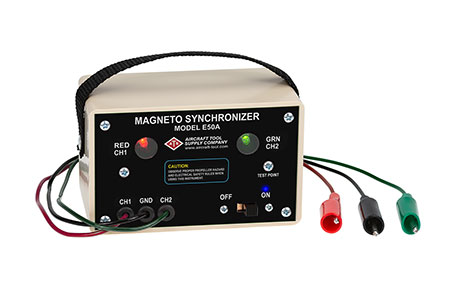
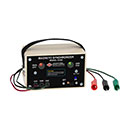
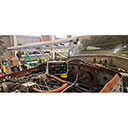
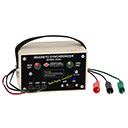
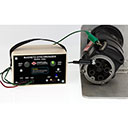
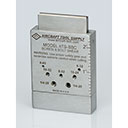
.jpg)
